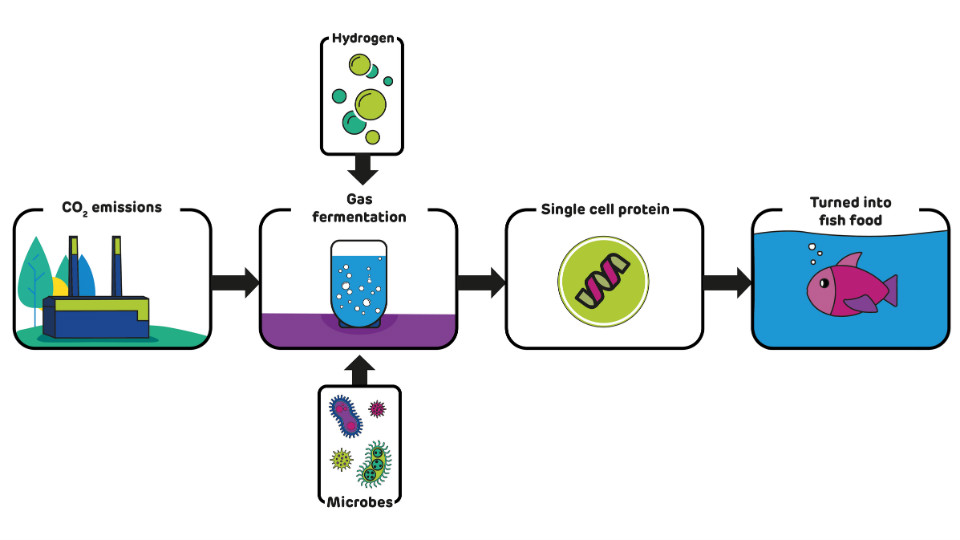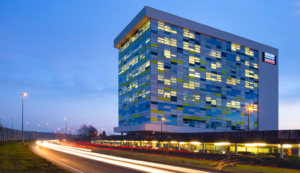
UK biotech to make proteins from carbon dioxide emissions
Deep Branch Biotechnology Ltd. from Nottingham has started a feasibility study with the British energy supplier Drax Group. The technology to be analysed converts carbon dioxide emitted by power stations into protein that could be used for feeding fish and livestock.
According to the deal announced in mid-June, Deep Branch Biotechnology will place a pilot plant within Drax’s Carbon Capture Usage and Storage (CCUS) Incubation Area at its power station in Selby in North Yorkshire. It will extract flue gases from the power station’s renewable electricity generation to feed to microbes, which can make proteins for use in fish food and other sustainable animal feeds. Deep Branch claims its technology can convert up to 60-70% of the emitted carbon dioxide into protein.
Within the cooperation enough carbon dioxide is captured to produce 100 kg of protein to be used to create feedstocks for fish and livestock. The protein generated from the project will be used in a trial project with a major feed producer, according to the announcement. If successful, Deep Branch Biotechnology plans to build a larger production facility by 2020 so it can produce several metric tons of protein per year.
Drax Power Station is the biggest renewable electricity generator in the UK having converted two thirds of the plant to use sustainable biomass instead of coal. The dedicated Incubation Area has been created at the power station to give other technology companies the opportunity to test their processes on its carbon dioxide. This is Drax’s first incubation project exploring a market for carbon dioxide. However, the company said it also held discussions with the British Beer and Pub association about the possibility of captured CO2 being used to carbonate drinks.
Drax Group chief executive officer Will Gardiner said, By giving partners like Deep Branch Biotechnology access to our Carbon Capture Usage & Storage Incubation Area, we can test emerging technologies and explore their potential in delivering for both the climate and the economy.
Deep Branch has only been founded a year ago. In early 2019, BioCity, a life science incubator and business collective, invested an undisclosed sum into the start-up. With the money a mobile production unit was built, enabling Deep Branch to demonstrate the technology.
© european-biotechnology.com




 Qiagen
Qiagen